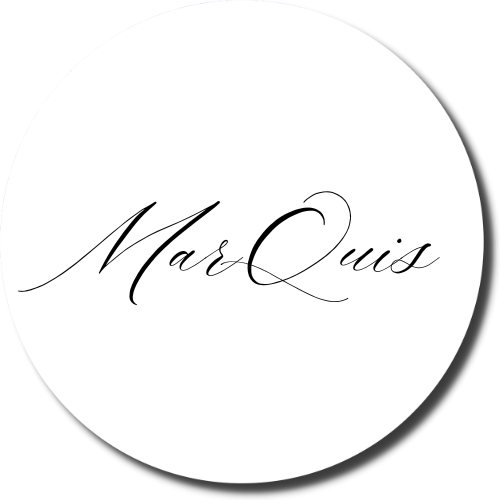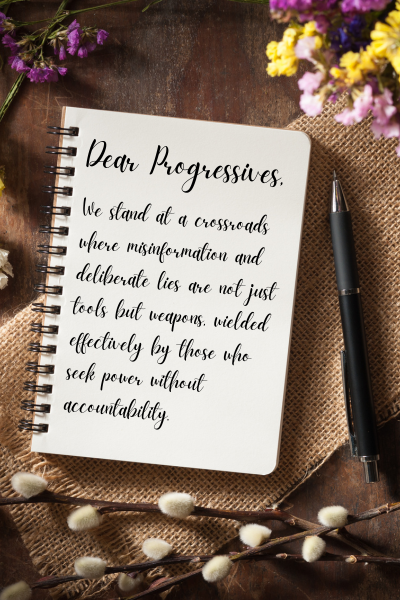…Repeat THIS…
It’s everywhere, if you listen closely-phrases like “for real for real”, “cray cray” or simply repeating a word to make it more true. It’s as if doubling down linguistically somehow strengthens the truth of a statement. Even in texting shorthand, there is “frfr”. These phenomena aren’t random-it’s a feature, not a bug. It reflects not just a cultural moment but most certainly, this cultural moment, where we feel compelled to assert the “realness” of what we’re saying. In this world where truth often feels blurred or unstable, we habitually – I think it’s unconscious – reinforce our words with this repetition, as if to make them more believable, credible, real – factual even. But why?
This instinct to repeat as a way of validating ourselves speaks to a deeper need for certainty. Much like the old adage, “if you say it enough times, it must be true,” or “my mother always said, if you wanna know, ask,” These repetitions reveal an underlying anxiety about our grasp on reality. It’s a curious cultural shift, one that reflets the broader themes of this essay – how we seek assurance through language, how repetition gives a sense of stability, even as it can lead us to accept things that may not be true at all. Because of course we know empirically that if we want to know something we don’t necessarily have to ask – we can observe… (just think about that.) But at least you get to sound like you listened to your mother.
I’ve often heard it said, “The American people are smarter than that.” It’s a phrase delivered with a kind of patriotic certainty, meant to remind us of our collective resilience and wisdom, even amidst a world replete with misinformation. There’s a subtle reassurance embedded in it, as if to suggest that no matter how pervasive the falsehoods or how persistent the manipulations, we possess a natural immunity to deception. Yet, this phrase, comforting as it may be, invites us to settle into a belief rather than a practice. It asks us to rest on our reputation rather than engage in the deeper work of discernment.
Vanderbilt Research News published a study citing:
“Study shows that repeated statements are more often judged to be true, regardless of a person’s age or prior knowledge.”
So, are we really as immune to deception as we like to believe? Or does this phrase provide an over simplified sense of closure – a conversational “end of the day” – that lets us sidestep the complexities of truth in favor of a familiar narrative? I’m hoping as you read this musing you will give yourself permission to take a closer look at how phrases like these, which speak to our need for reassurance, might actually mask a vulnerability. In a world where lies are designed with precision and delivered on repeat, a comfortable belief in our own immunity may leave us more exposed than ever. If we are going to navigate this landscape effectively, we will likely need less faith in what we are supposed to be and more engagement with a self-discovery framework that reveals who we actually are.
The Violent Assault of Lies and the Bias Against Self-Discovery
We live today in a world of relentless flow of information. Soundbites and slogans permeate every aspect of our lives. Because of this, discerning truth from falsehood has become both increasingly challenging and critically important. Lies, unlike the reflective magic of fairy tales, do not inhabit a realm of innocent “make believe.” They are deliberate fabrications – made up not of wonder or ethical reflection but as aggressive intrusions upon truth. A lie compels us to make believe in a reality that serves bad-faith manipulation rather than understanding.
Lies rely on repetition to embed themselves in our consciousness, exploiting a cultural and cognitive bias that makes us susceptible to the familiar. Iain McGilchrist alerts us to this in his book, The Master and His Emissary. He notes that the left hemisphere of the brain – the side dominant in language, structure, and sequential thought – does “all the talking.” Western Culture’s tendency to prioritize education through left-hemisphere functions aligns disturbingly well with the way lies operate. Lies exploit this asymmetry, drawing on our left hemisphere’s preference for the linear and the familiar. When a lie is repeated, it begins to feel real not because it holds any truth, but because it has become well-worn through sheer familiarity. Made up stories and make believe illusions, when cloaked in the language of repetition, transform into accepted “truths.”
That Vanderbilt Study further states:
“When adults hear a statement repeated twice, they are more likely to think it is true than if they heard it only once. This has been replicated many times in existing research studies and is know as the illusory-truth effect of believing something to be true if it’s repeated often enough, even when it is false.”
The Passive Acceptance of Cliché’s: “It Is What It Is” and “Everything is Everything” (Carrying the Water)
Consider the phrases “it is what it is” and “everything is everything.” At first glance, these idioms seem harmless, even comforting. They suggest a level of acceptance, a way to make peace with circumstances beyond our control. However, these phrases also exemplify a passive resignation that discourages deeper inquiry – which is the heart of self-discovery if not also the art of it. They become verbal full stops, halting further discussion or reflection. When confronted with complexity or uncertainty, resorting to “it is what it is” allows us to avoid the discomfort of critical engagement. Similarly, “everything is everything” flattens distinctions, implying that all things are equivalent and thereby negating the need for analysis or discernment. This is a critical quagmire bulging out from the both-sidesism framework.
These idioms reinforce a left-hemisphere tendency toward oversimplification and surface-level understanding. By accepting such phrases without question, we inadvertently promote a mindset that is susceptible to virulent manipulation. Lies thrive in this environment of passive acceptance, where the repetition of a simplistic statement can override the nuanced reality of a situation.
At the End of the Day: The Metrics of Deception
Then there’s a phrase I hear probably the most. I hear it at bars, phone conversations, restaurants, churches, talk shows, and news punditry – “at the end of the day.” Commonly used to signify a moment of closure or final assessment, it implies that a definitive judgment can and should be made. But time is not as fixed or linear as we often perceive it to be -there is no literal “end” to the day. This phrase aligns with a left-hemisphere framework, reinforcing cultural preference for quantifiable, measurable outcomes. It reduces complex processes and ongoing narratives to simplistic endpoints, encouraging us to judge experiences by superficial metrics rather than deeper understanding.
In using “at the end of the day,” we may unconsciously endorse a worldview that prioritizes results over processes, conclusions over explorations. This reinforces the kind of thinking that lies exploit: a desire for clear, uncomplicated answers that fit neatly in to preconceived structures. Our mind muscle is so unused that our self-discovery is in atrophy – and we are in fatigue when we are challenged to think…
(Somebody is really happy that thinking critically makes you tired. Do you happen to know who that somebody(s) is?)
Lies as Information in the Age of Information
In this political landscape, and in the space of our information-saturated society, lies themselves become a form of information. This complicates the notion of “low information voters” – a cliché that suggests a lack of knowledge or engagement. However, in an era where misinformation and disinformation are rampant, being inundated with information does not equate to being well-informed. In fact, the proliferation of lies can create an illusion of knowledge while actually obscuring the truth.
The term “low information voters” undermines the realty that people are not necessarily lacking information; rather, they may be overwhelmed by a multiplicity of conflicting data, much of which is deceptive. Lies, repeated and disseminated widely, contribute to this overload, making it increasingly difficult to discern credible information from falsehoods. This challenges the assumption that access to more information naturally leads to better understanding or decision-making.
In this environment, the left-hemisphere’s preference for familiar patterns and repetition can lead individuals to accept lies simply because they are pervasive. The aggressive nature of lies capitalizes on this cognitive bias, embedding falsehoods into the collective consciousness through sheer volume and repetition.
The Bias Against Self-Discovery: Left-Hemisphere Dominance in Western Education
Our educational systems reflect and reinforce these tendencies. By prioritizing quantifiable outcomes and standardized testing, Western education often neglects the development of critical thinking, intuition, and contextual understanding – the domains of the right hemisphere. This creates a “self-discovery anti-bias,” where students are trained to process information without deeply engaging with it. The focus is on “what” to think rather than “how” to think, “memory” rather than “synthesis.”
This hegemonic dominance suppresses the very faculties needed to navigate the complexities of the information age. Without the ability to critically assess the quality and credibility of information, individuals become more susceptible to accepting lies as truth. The passive acceptance of clichés like “it is what is”, “everything is everything” further discourages the questioning of presented, and sometimes common, narratives.
Does practice make perfect? Or is it perfect practice makes perfect? Either way, we are what we rehearse.
Lies as Aggressive Acts: Reclaiming the Power of Self-Discovery
Lies are not innocent creations: They are strategic manipulations designed to distort reality. Unlike fairy tales and myths, which use make believe to invite ethical reflection and personal growth, lies weaponize make believe to enforce compliance with a fabricated reality. They are aggressive acts that demand belief, exploiting our cognitive biases and cultural tendencies toward passive acceptance – and sometimes unwitting co-conspirators in their service.
To counter this, we must reclaim the power of self-discovery. Many view self-discovery by other names and is often considered akin or synonymous with a spiritual practice. Engaging the right-hemisphere’s capacities for intuition, empathy, and holistic understanding enables us to see beyond the surface of repeated narratives. Self-discovery fosters critical thinking, allowing us to question the familiar and probe deeper into the information presented to us.
By nurturing these faculties, we strengthen our resilience against deception. We become better equipped to recognize when made up stories are being presented as truths, and we can challenge the insistence that we make believe in realities that serve manipulative ends.
Toward a New Paradigm: The Role of Self-Discovery in Resisting Deception
Embracing self-discovery is not merely a personal journey; it is a societal imperative in the face of pervasive information. By fostering an educational and cultural environment that values depth over breadth, context over fragmentation, and inquiry over acceptance, we empower individuals to navigate the complexities of the information age.
This approach challenges the reliance on passive idioms and superficial metrics that discourage critical engagement. It rejects the reductionist thinking embodied in phrases like “at the end of the day,” “it is what it is,” and “everything is everything.” Instead, it encourages a mindset that values ongoing exploration and acknowledges the multifaceted nature of reality.
Self-Discovery as a Defense Against Deception
We are here… we are in an era where lies are disseminated as readily and propagate faster than truth, and where information overload can obscure understanding, the need for this self-awareness and critical engagement is paramount. Lies are not just false statements: they are aggressive intrusions that exploit our cognitive biases and cultural tendencies toward passive acceptance.
By recognizing that lies are a form of information – often indistinguishable from truths in their presentation – we can better appreciate the challenges of navigating the modern informational landscape. The label “low information voters” fails to capture the complexity of this reality, as it overlooks the inundation of misleading and deceptive content that individuals must sift through.
To defend against deception, we can’t avoid moving beyond this passive acceptance and simplistic metrics. We will need to question the familiar, probe the repeated narratives, and engage deeply with the information presented to us. This self-discovery framework is not aimed at undermining the analytics and the quantifiable. It is here for us to understand how to place narratives, events and ambition in healthy relationship. I’m not here to argue for right hemisphere superiority; I want us to use the part of our humanity that has gone unattended for so long, it troubles us to believe we can.
Embracing Self-Discovery and Repetition as Acts of Truth
So, we know that lies, slogans and shallow phrases echo around us. The instinct to repeat words like “for real for real” reflects a need to ground ourselves in what feels real. If repetition is powerful enough to enforce and reinforce lies, imagine the potential it has to strengthen what’s authentic, what’s meaningful. Repetition doesn’t just solidify information; it shapes our thoughts, our habits, and ultimately, our identity.
This is my real call to action: “Repeat THIS.” Repeat the ideas that matter, the ones that foster truth, understanding, and depth. Embrace intentional, mindful repetition as a way to break the cycle of passive acceptance, replacing it with a commitment to self-discovery, communal awareness and growth. When we rehearse clarity, curiosity, and empathy, we bring depth to the echo chamber, making space for understanding instead of mere noise.
Remember, “People are what they rehearse.” If we practice repeating only what reassures or placates us, we risk becoming comfortable but stagnant. But if we practice repeating what challenges us – ideas that call us to think critically, feel deeply and connect genuinely – we begin to reshape ourselves and the culture around us.
So, at the end of the day – when it’s truly up to us to decide what’s worth repeating – let’s choose substance over ambiguity. Let’s make our repetitions count.



